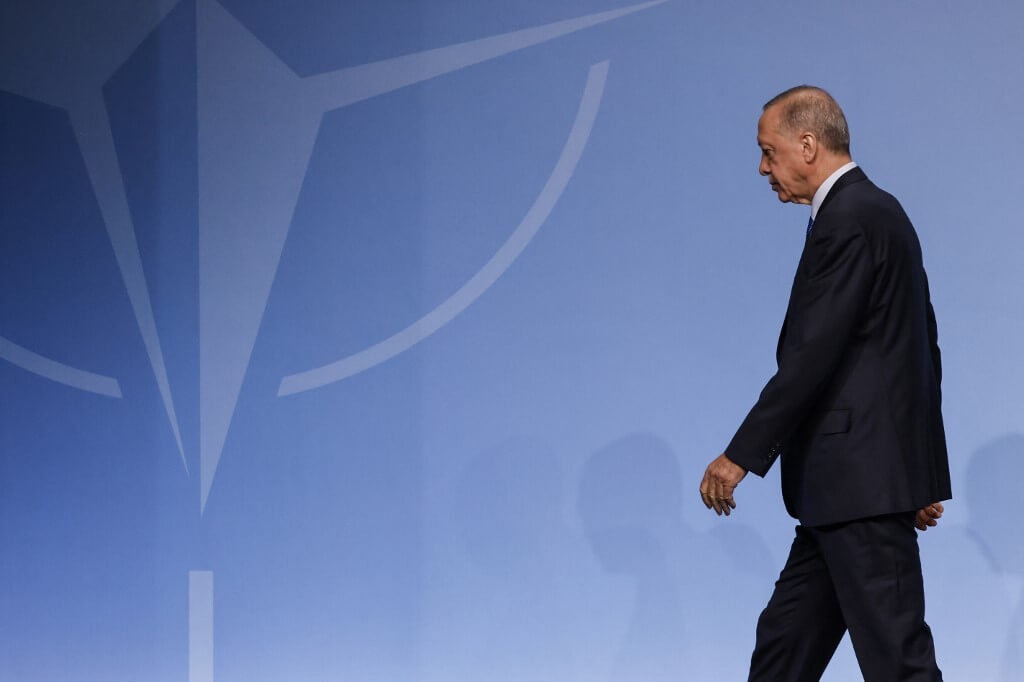Turkey is seen as the least reliable partner by the people of 13 countries on both sides of the Atlantic, according to the results of the Transatlantic Trends 2023 survey.
The results of the survey, conducted in 14 countries — Canada, France, Germany, Italy, Lithuania, the Netherlands, Poland, Portugal, Romania, Spain, Sweden, Turkey, the United Kingdom and the United States — were published in a report released on Monday.
The Transatlantic Trends series is a flagship publication of the German Marshall Fund of the United States (GMF), providing policymakers, business leaders, experts and the broader public with in-depth and comprehensive public-opinion analysis of relevant political, economic and strategic trends.
According to the report, only 25 percent of the foreign publics see Turkey as a reliable partner, which makes it the least reliable partner for these countries, while Canada, Germany and Sweden are seen as the most reliable.
Turkey is followed by Romania as the least reliable partner with only 34 percent of people surveyed finding the country a reliable partner.
Turkey and Romania were at the bottom of the list of reliable countries in the Transatlantic Trends 2022 survey.
NATO ally Turkey attracted criticism when the Turkish government last year objected to the NATO membership bids of Finland and Sweden, which decided to join the bloc in the wake of the Russia’s war on Ukraine.
Turkey objected to these countries’ membership on claims that they provided a safe haven to political dissidents from Turkey who are deemed “terrorists” by the Turkish government.
The Turkish government gradually abandoned its reservations and gave a green light to Finland’s NATO bid, which became a member of the bloc in April.
In July President Recep Tayyip Erdoğan also withdrew his objections to Sweden’s NATO membership and promised that the Turkish parliament would ratify it after it returns from summer recess in October.
The membership of a new country in NATO must be ratified in the parliaments of each of the member countries.
Turkey’s months-long objections against the NATO bids of Sweden and Finland have led to debates about whether it is a reliable partner for the bloc’s members and whether it is committed to stopping Russia’s aggression. Turkey has also not joined in the international sanctions on Russia imposed by the Western countries due to its war on Ukraine.
The Transatlantic Trends Survey also showed that 56 percent of people in Turkey think their country is a reliable partner for the EU, while 47 percent think it is a reliable partner for the US.
When asked about the most important security challenge in the years to come, 43 percent of respondents in Turkey said it is immigration, while the second biggest security challenge is seen as terrorism, with 17 percent of respondents naming it.
According to UN data, Turkey hosts 4 million refugees and has been the largest refugee hosting country in the world for the past nine years. There are 3.3. million Syrian refugees in Turkey, according to official figures.
There is a growing public unease over the refugees, with many accusing the Turkish government of pursuing an open-door policy toward them.
With unemployment high and the price of food and housing skyrocketing, many Turks have turned their frustration toward the refugees, who are blamed for the bulk of Turkey’s social and economic troubles. Their homes and stores are frequently vandalized by angry groups.

